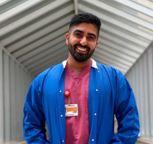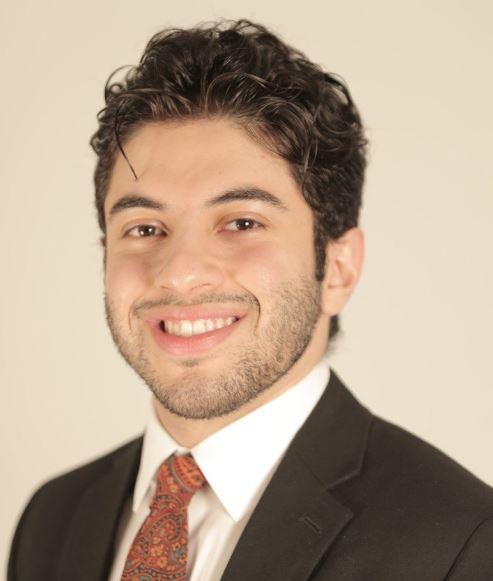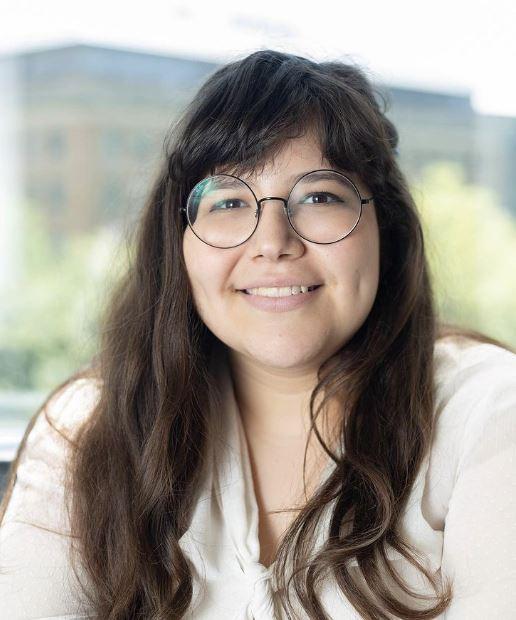News and Congratulations
Congratulations to our our new incoming TL1 trainees, read more about them and their research below:

Neil Gallagher, PhD
Neil Gallagher, PhD, is a Postdoctoral Associate in the Department of Psychiatry at Weill Cornell Medicine. For his TL1 Research, Neil will work to develop interpretable EEG-based network biomarkers that predict the efficacy of the SNT rTMS protocol for treating depression and OCD from recordings before and after stimulation sessions, which will help to elucidate what makes some rTMS protocols more effective. Additionally, a post-stimulation biomarker will allow for the rapid development of more effective rTMS protocols because feedback on protocol efficacy could be evaluated within a stimulation session, rather than waiting for clinical evaluation. A pre-stimulation biomarker would provide a screening tool for deciding whether SNT is an appropriate treatment for a patient. His mentors on the TL1 project include Conor M. Liston, MD, PhD, Associate Professor, Psychiatry, WCM, and Mert Sabuncu, PhD, Associate Professor, Biomedical Engineering, Cornell University – Ithaca.

Mengying Hu, PhD
Dr. Hu is a WCM Postdoctoral Associate in the department of Pediatrics focused on Oncology. Mengying’s TL1 research will concentrate on addressing the mechanisms of T cell EV-mediated reprogramming of tumor cells and investigate the translational value of T cell exosomes and exosomal DNA (exoDNA). She will employ techniques including next-generation sequencing approaches (e.g., whole genome sequencing, RNAseq, ChIPseq), mass spectrometry proteomics, advanced microscopy (e.g., confocal microscopy, electron microscopy), multi-color flow cytometry, other regular molecular biology techniques such as western blot, ELISA, and PCR, as well as bioinformatics tools. Multiple mouse PDAC models and patient PDAC biopsies along with matched blood samples are involved in the translational evaluation. Mentors on this TL1 project include David Charles Lyden, MD, PhD, Professor, Pediatrics, WCM, and David Kelson, MD, Chair in Medical Oncology, Gastrointestinal Oncology, Memorial Sloan Kettering Cancer Center.

Richard Garner, BS, MS
Richard Garner is a 3rd-year graduate student in the Biochemistry & Molecular Biology (BCMB) Program at Weill Cornell Graduate School of Biomedical Sciences. His research aims to determine if FOXA2 serves as a useful biomarker to identify PCA cells that will transition to NEPC. This will be accomplished through the demonstration of the potential for FOXA2 protein expression as a novel biomarker to help predict which CRPC patients will develop NEPC using patient-derived CRPC and NEPC organoids and prostate cancer tissue microarrays and by identifying and characterizing FOXA2 targets during this transition using ChIP-seq and ATAC-seq. His TL1 research mentors are David Rickman, PhD, Associate Professor, Pathology, WCM, and Yu Chen, MD, PhD, Associate Attending, Genitourinary Oncology, Memorial Sloan Kettering Cancer Center.

Alikhan Fidai, BS
Alikhan Fidai is a 3rd-year Biomedical Engineering doctoral student at Cornell University, Ithaca. His TL1 research proposal investigates how bone marrow-derived mesenchymal stem cells (BMSC) and their mitochondrial (MT) counts influence patient IVD healing outcomes. Specifically, he is interested in how delivering MT-rich BMSCs will impact the biomechanical performance and biochemical composition of treated IVDs in vivo. Establishing these relationships will enable the development of criteria for selecting patients that are good candidates for intradiscal injections of autologous bone marrow. Additionally, these studies would establish a framework for processing bone marrow samples to increase their regenerative potential. His TL1 research mentors are Lawrence J. Bonassar, PhD, Professor, Biomedical Engineering, Cornell University, Ithaca, and Roger Hartl, MD, Associate Professor, Neurological Surgery, WCM.

Arsalan Haghdel, BS, MPH
Arsalan Haghdel is 3rd-year Weill Cornell Medical College medical student interested in Diagnostic Radiology. His project objective is to gain a more precise understanding of the relationship between radiographic and histopathologic features of meningioma, the most common primary brain tumor. Advancements in understanding the molecular biomarkers of meningiomas have uncovered genetic alterations and epigenetic changes that determine tumor behavior, however, the imaging correlates of these molecular biomarkers are currently unknown. Using machine learning, Arsalan aims to integrate advanced imaging features with identified molecular biomarkers of meningioma to develop an imaging-based classification system for tumors. This radiopathomics approach would allow an in-vivo assessment of tumor biology at the time of diagnosis and recurrence, thereby allowing a personalized medicine approach to treatment planning for patients using advanced imaging. Research mentors serving on this project are Jana Ivanidze, MD, PhD, Assistant Professor, Radiology, WCM; Benjamin Liechty, MD, Assistant Professor, Pathology, WCM; and Mert Sabuncu, PhD, Associate Professor, Biomedical Engineering, Cornell University – Ithaca.

Valerie Gallegos, BS
Valerie Gallegos is a 3rd-year doctoral student in the Biochemistry & Molecular Biology (BCMB) Program at Weill Cornell Graduate School of Biomedical Sciences. Her TL1 research project aims to develop a combination treatment that uses senolytics to reduce the senescent cell population and treat cancer simultaneously. Fibroblasts provide support for the tumor mass. Senescent fibroblasts have been shown to help cancer become more aggressive. She plans to establish organoids, which are basically mini tumors, with senescent fibroblasts and cancer cells that were collected from patients to study how senescent fibroblasts affect tumor size and protein expression. Her TL1 research mentors are Olivier Elemento, PhD, Professor, Physiology and Biophysics, WCM, and Adrienne Boire, MD, PhD, Assistant Attending, Neurology, Memorial Sloan Kettering Cancer Center.
The CTSC TL1 Training Core Award Program supports early career development among pre- and early post-doctoral trainees by providing salary support, protected time, advanced degree training and practical skills necessary to conduct interdisciplinary Clinical and Translational Investigation in a team research environment.

